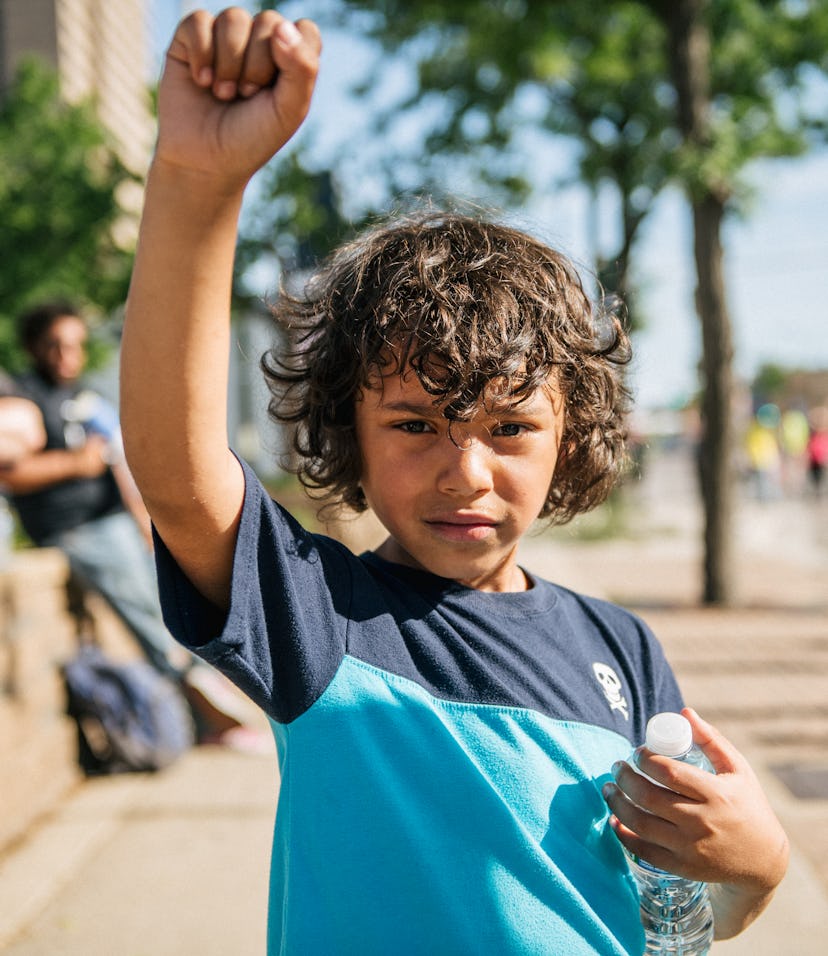Politics

On Social & Political Issues, Parents Trust Family Over Experts
Just 8% of parents in a new survey said they viewed scientists as trusted sources of information.
While the coronavirus pandemic kept nearly everyone trapped indoors for most of 2020, political activism and social justice movements still managed to dominate both news headlines and our daily lives. Parents proved to be especially eager to soak up as much knowledge as they could about pressing issues. As for who they turned to, a new survey found that parents’ most trusted sources of information continued to be family rather than experts or activists.
To better understand caretakers’ attitudes toward social, civic, and political issues following the doozy of a year that was 2020, Berlin Cameron, in partnership with Romper, the Female Quotient, and Kantar, surveyed more than 1,000 male and female caregivers between the ages of 18 and 54. While 33% of respondents said they did not consider themselves to be activists, 51% said becoming a parent had caused them to care more about social, civic, and political issues. What’s more, 37% of parents said 2020 made them more politically active.
23% percent of caretakers said they didn’t trust any of the sources listed in the Caretaker Activism Research survey, which included the media, scientists, their kid’s pediatrician, government agencies, their local school board, social media, family, partners, friends, experts, church leaders, activists, influencers, and celebrities.
But parents aren’t likely to run for office, host fundraisers, or lobby elected officials. Raising children, after all, takes a lot of time and energy, meaning parents are you know, kinda busy. Instead, voting was the most common social, civic, or political action taken in the past year among caretakers surveyed. A whopping 64% of respondents reported to have cast a ballot within the last year. The second most common action parents took in 2020 was learning about a social or political topic. In fact, 43% of caretakers reported having taken efforts to educate themselves on an issue or cause close to their heart.
But what sources of information do parents trust? Interestingly, a lot of parents seemed skeptical of everything and everyone. Twenty-three percent of caretakers said they didn’t trust any of the sources listed in the Caretaker Activism Research survey, which included the media, scientists, their kid’s pediatrician, government agencies, their local school board, social media, family, partners, friends, experts, church leaders, activists, influencers, and celebrities.
Another 17% said they viewed their family, partner, or spouse as their most trusted source of information. That was followed by 14% who said they considered experts like Dr. Anthony Fauci to be their most trusted source of information and 8% who cited scientists and the media respectively as their most trusted sources.
Lowest on the list of parents’ trusted sources was government entities like the U.S. Centers for Disease Control and Prevention (CDC), which only 5% of caretakers reported trusting, and activists, which also garnered trust from only 5% of respondents.
It’s not altogether surprising to learn that, after 2020, parents view family members and partners as more trustworthy sources of information than experts and activists. Earlier studies have shown that parents often trust the advice or information they receive from family over that of other sources.
In 2009, a CDC survey of moms with at least one child under the age of 18 found friends and family were moms’ second most trusted source of information, second only to pediatricians. According to the CDC, 55% of responding moms said they trusted family and friends over parenting books, websites, magazines, newspapers, broadcast news, and anything they might turn up in an internet search.
It seems that more than a decade after the CDC surveyed moms, most parents still view family as their most trusted source of information for everything from parenting advice to pressing political issues.